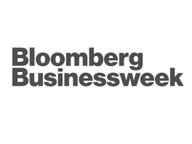Faculty News
—
Profs. Asker and Ljungqvist's research on investment patterns of public vs. private firms is cited
—

Excerpt from Forbes -- "A brilliant study by economists from the Stern School of Business and Harvard Business School, Alexander Ljungqvist, Joan Farre-Mensa, and John Asker, entitled 'Corporate Investment and Stock Market Listing: A Puzzle,' offers confirmation. The study compares the investment patterns of public companies and privately held firms. It turns out that the lag in investment is a phenomenon peculiar to public companies."
Faculty News
—

Excerpt from Forbes -- "A brilliant study by economists from the Stern School of Business and Harvard Business School, Alexander Ljungqvist, Joan Farre-Mensa, and John Asker, entitled 'Corporate Investment and Stock Market Listing: A Puzzle,' offers confirmation. The study compares the investment patterns of public companies and privately held firms. It turns out that the lag in investment is a phenomenon peculiar to public companies."


















